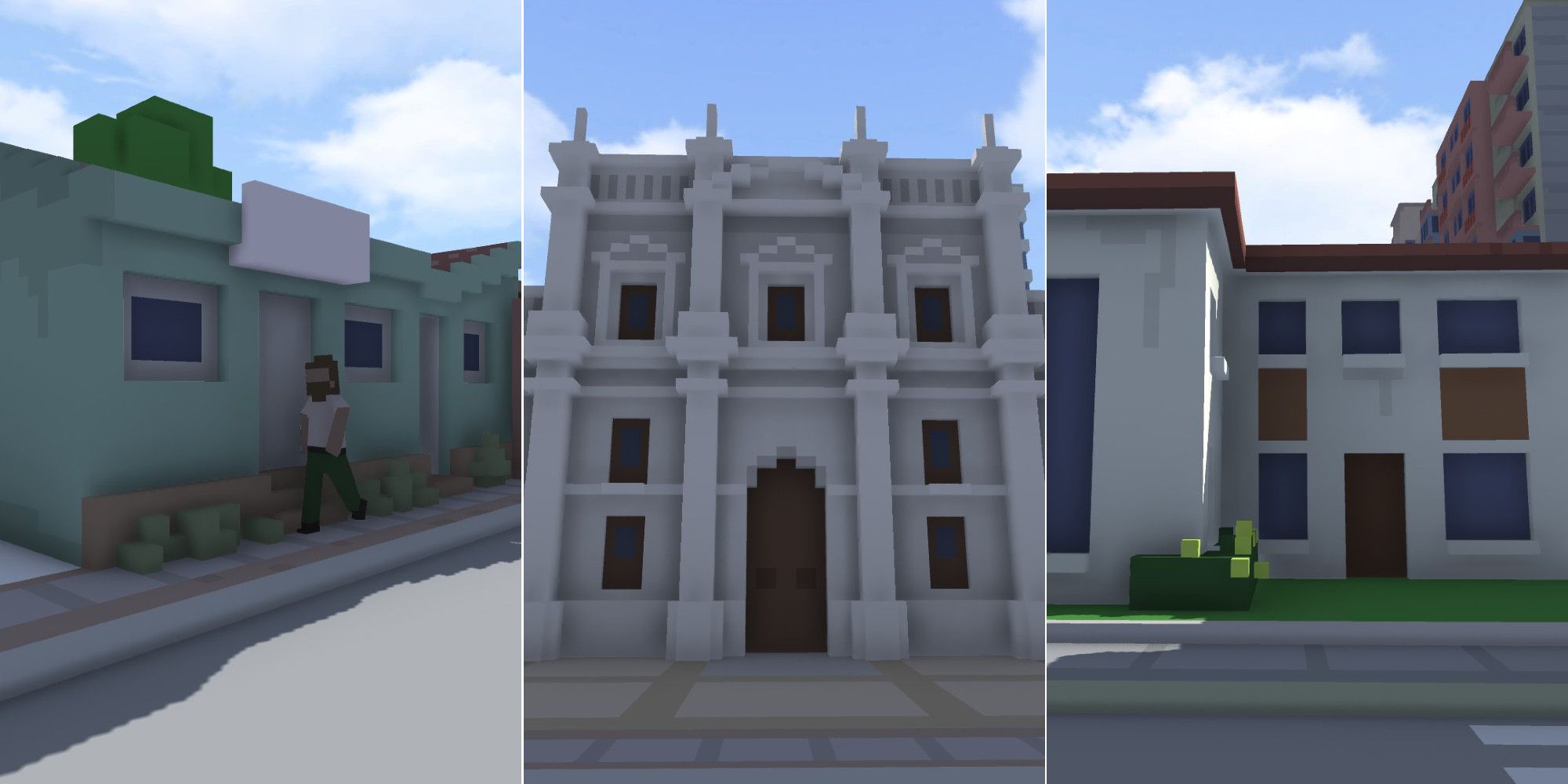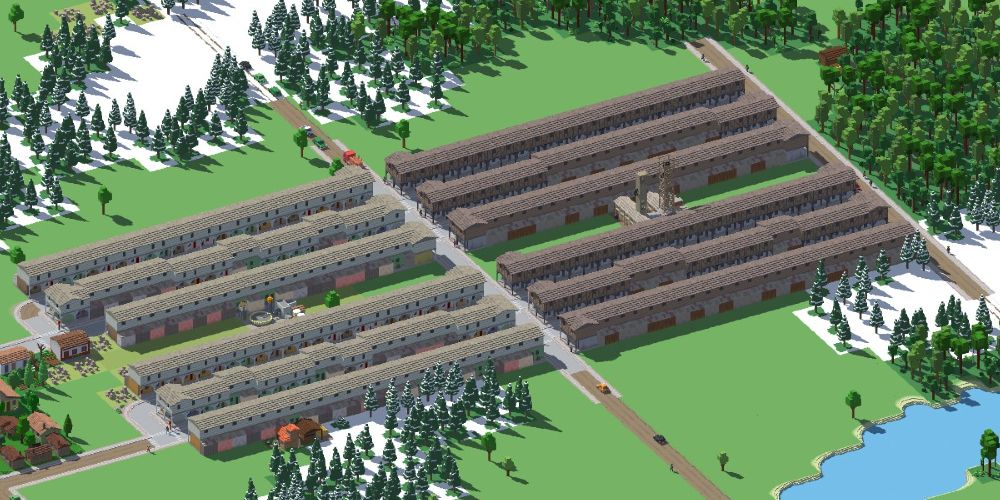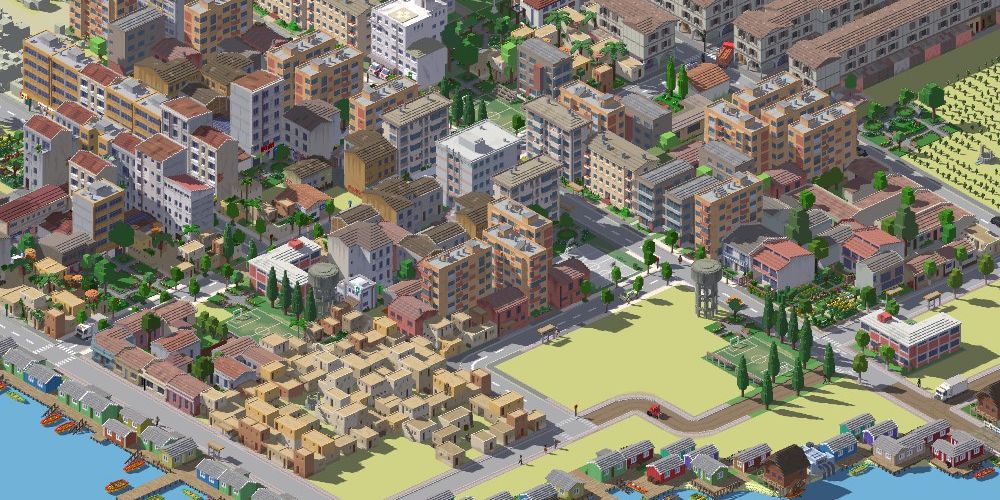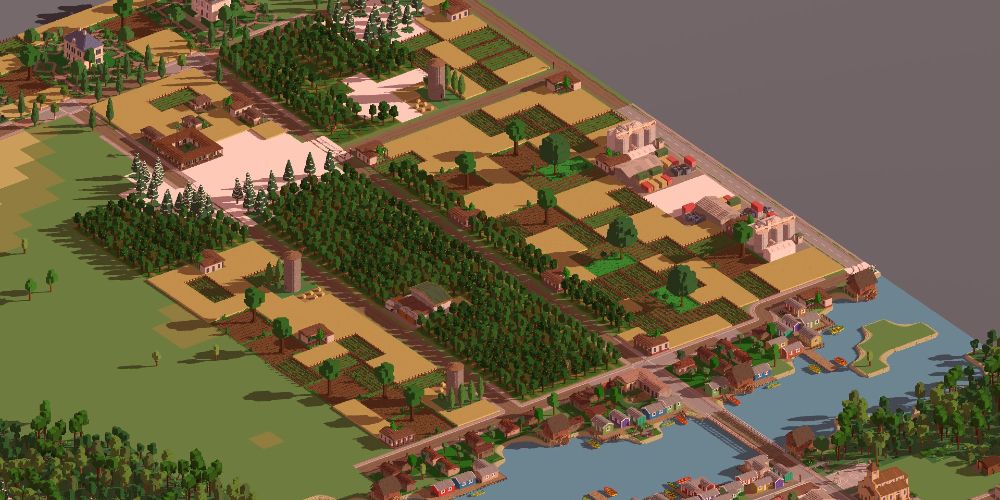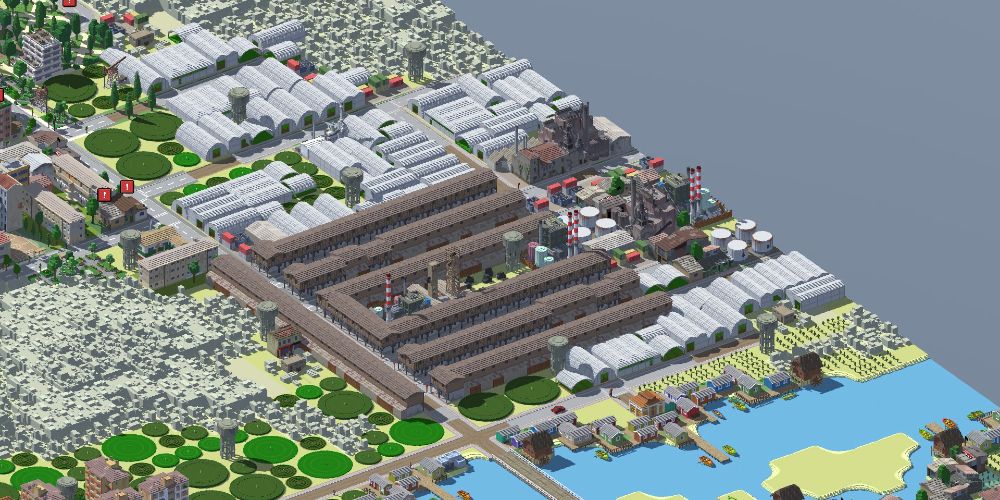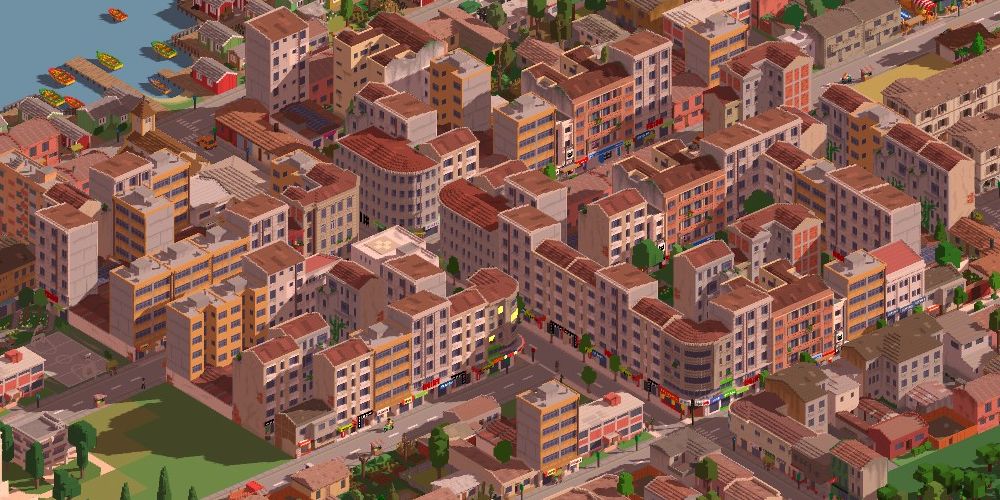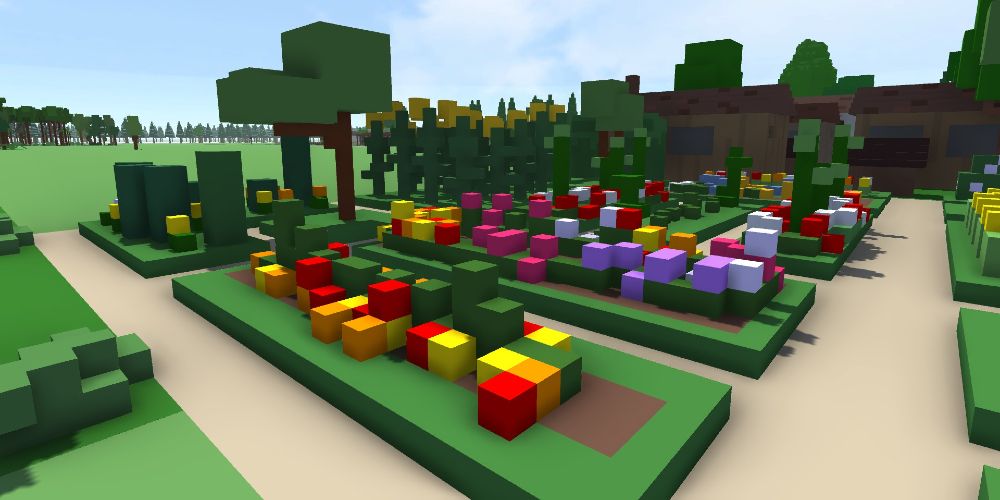Policies represent the laws and regulations you've passed in Urbek City Builder. They're unlocked by building the three tiers of government buildings; the Neighborhood Council, City Council, and City Hall. Nearly every Policy in the game has a benefit and a tradeoff, often drastically altering the production and consumption of one or more building types.
Choosing Policies that fit your city can make or break your game. While the right choices will ultimately come down to what your city needs versus what it can produce, we've found that these particular laws are effective in most situations and will serve you well.
6 Pay Miners In Tokens
- Unlocked By: City Council
As vile as the practice is in real life, Urbek is thankfully only a game. Paying your miners with tokens instead of actual money increases your production of Iron and Coal while reducing all miners' Happiness to one. The increase in production only affects Iron and Coal from miner housing; mines and other production facilities are unaffected. For this reason, it's best used when you have a densely populated mining district.
Unlike many of the other Policies on this list, Pay Miners In Tokens should be used as a stopgap measure to address and correct a shortage. Once the shortage is dealt with, revoke the policy to get your miners' Happiness back to its usual resting point.
5 Markets In Soccer Pitches
- Unlocked By: Neighborhood Council
One of the earliest challenges in any game of Urbek is getting Food Services to your starting neighborhoods. Local Markets are the cheapest option, but require nearby Farms that take up space that could be used for other things. Minimarkets fit anywhere but require a large investment of Work and Food that isn't always feasible in the early game. A decent compromise is to allow football pitches to double as farmers' markets.
The pitches won't generate quite as much Leisure or Sport, but the difference is negligible since you'll probably be building more of them anyway. They'll still eat up two hundred Food each per month, like other Food Service buildings, and their Work upkeep will be increased, but Markets In Soccer Pitches makes for efficient early-game neighborhoods that reap multiple benefits from a single 2x2 plot.
4 Better Quality Food
- Unlocked By: Neighborhood Council
This early Policy can be a smart pick as soon as it's available, even if you only plan to keep it for the minimum six months. By reducing the overall production of your Farms you can get an increase to your Happiness. By the time you start to need the Food back, you'll have plenty of means for making up the Happiness difference once the Policy is repealed.
Enacting Better Quality Food right away can usually push you over the Happiness threshold required to unlock Football Pitches if you aren't already there, helping to move along the tech tree. Best of all, non-Farm sources of Food such as Orchards and Food Research Centers are unaffected by the Policy. With the right setup, you can get extra Happiness for nothing!
3 Industry R&D
- Unlocked By: City Hall
Science is one of the hardest resources to come by in the entire game. It's primarily produced by Universities and their unlockable Faculty buildings, but the requirements and costs for each are steep. It's simply not possible to produce enough Science to do everything that's possible with it, so you'll have to make tough decisions; do you take incremental costs to invest in clean energy, or dump all your Science into nuclear power or advanced agriculture?
Whichever you choose, the Industry R&D Policy can help you get a few extra points of Science here and there when you need it most. It causes Factories to convert one unit each of Steel into Science, making these otherwise-underwhelming buildings a supplement to your Universities. The Steel cost prevents players from flooding the map with Science-producing Factories, but the extra resources could be all it takes to secure a victory on the Path of Productivity.
2 Reduced Working Hours
- Unlocked By: Neighborhood Council
By the time the mid-game rolls around, chances are you'll be producing more Unskilled Work than you know what to do with. That means it's time to give people a break! As its name implies, Reduced Working Hours lowers your overall production of Unskilled Work but gives your entire city a Happiness boost!
Happiness acts as a score multiplier after you meet one of your map's victory conditions. Since a happier population will lead directly to a higher overall score, enacting Reduced Working Hours is effectively free points at the end of the game.
1 Eating Insects
- Unlocked By: City Hall
This late-game Policy can solve many of your city's Food supply issues with a single click. Investing in alternative sources of nutrition - specifically, bugs - increases your city's overall Food production by an astonishing twenty percent. This can put thousands more units of Food into your economy, letting you rapidly expand or improve residential districts as you make your final push on your chosen path.
Eating Insects does reduce your city's overall Happiness by two, so it will impact your score at the end of the game, but in most campaigns it will be necessary to reach the critical population threshold of fifty thousand required for the game's most advanced buildings. The people will learn to love their grasshopper burgers before long.

